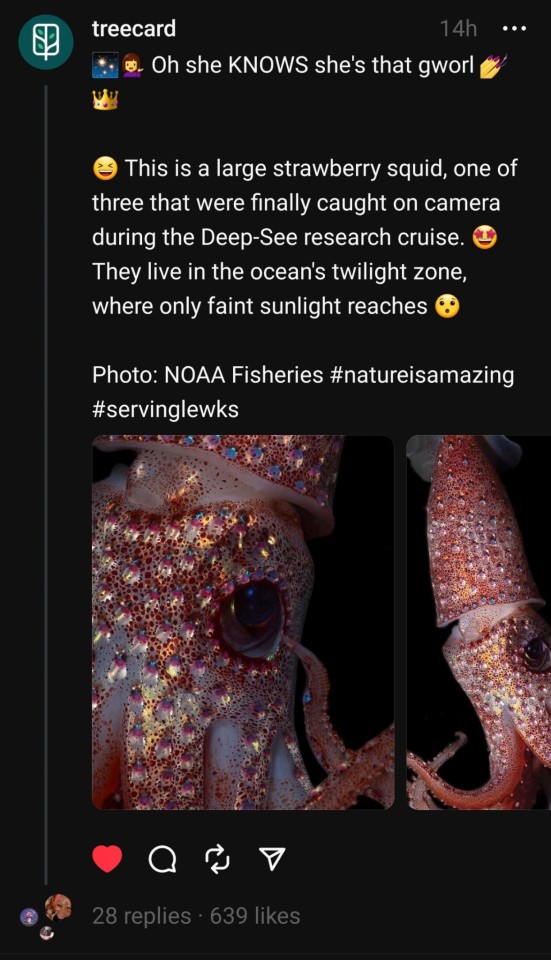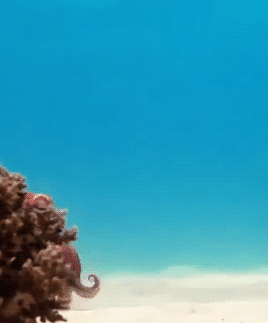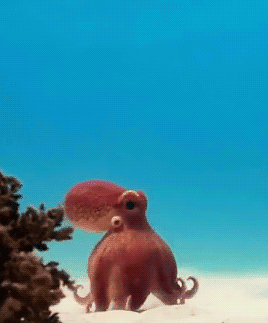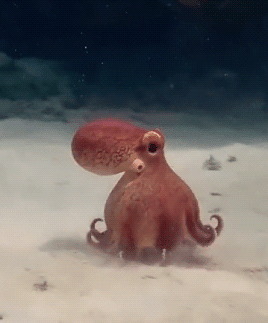" Mesmerizing " // © Maxwel Hohn
" Mesmerizing " // © Maxwel Hohn
Music: Gibran Alcocer - Idea 22 (Sped Up)
More Posts from Mermaidfrenzy and Others
Shark Dump: Lemon Sharks!
Some of you seemed to enjoy my shark facts and honestly, if I can get the chance to rave about sharks, I will. So here are some shark facts starting with my favorite, Lemon Sharks!!
If you guys enjoy this, feel free to leave me a request with the name of a shark you'd like to learn about and I'll be happy to info dump on them. I'm thinking about posting one every Sunday (Shark Sundays!!! :D )
Technically I was supposed to post this earlier but I didn't lol oops-

Conservation Status: NEAR THREATENED
This cute guy here is a Lemon shark or Negaprion brevirostris! They get this name from their yellowish skin and yellow bellies but they can be anywhere from brown to olive colored. Lemon sharks are mostly native to the Atlantic Ocean and parts of the Pacific where they occupy coral keys, mangrove forests, bays and even docks. Most populations can be found in Gulf of Mexico, the West Indies, and the Caribbean.
They can grow up to 11 ft long which makes them one of the larger species of sharks but don't let their size scare you! These guys are mostly scavengers that hunt for food near sandy in-shore areas. Most of the lemon sharks diet consists of bony fish, crustaceans and stingrays although they occasionally snack on seabirds or smaller sharks. They hunt using electroreceptors on their nose, called ampullae de Lorenzini, which help them detect fish and other creatures, even buried in the sand.
(Remember, sharks don't have hands so they rely on their nose and mouth to explore the enviroment around them!)
Lemon sharks usually live in oceanic waters that are no deeper than 188 ft although some have been found in waters at depths of up to 300 ft. They are one of 43 sharks that can swim in freshwater but usually don't travel very far into these waters as they can't survive for long periods in them. If you see a lemon shark in freshwater, they're probably just there for a quick bite to eat before heading back to the ocean.
Fun Fact: Bull sharks are the only shark that can survive in both salt and fresh water! They're also one of the dumber sharks and will try to eat anything that fits in their mouths.
Despite how scary they look, lemon sharks are actually a favorite among divers and marine biologist because of their docile behavior! They rarely attack humans (As of 2011, researchers had found only 10 cases of lemon sharks attacking humans, and none of these cases were deadly), in fact, they are very shy and usually try to avoid us. Though if they do approach, they're usually just being curious and will bump you with their nose.

But my favorite thing about lemon Sharks? Once they get over their shyness, they LOVE getting belly rubs! They find the sensation very pleasant and will actively seek out the divers who pet them, even chasing other sharks away if they feel the diver’s giving them too much attention. Sometimes, if you rub their belly too much or if you stimulate the tiny sensory pores located on their snout, you can put them into something called tonic immobility.
Tonic immobility is a reflex that causes a temporary state of inactivity in an animal. Similar to hypnosis! Researchers aren't sure why sharks do this as it's usually thought to be a prey instinct so apex predators like sharks shouldn't have this. But most researchers have found that the sharks aren't stressed when they perform this behavior so it might just mean they're really relaxed! This is backed up by the fact that when in this state the shark’s muscles relax and their breathing becomes deep and rhythmic. Sharks usually enter tonic immobility in less than a minute and they can remain in this state for up to 15 minutes. It doesn't hurt them at all and researches use this to help subdue them.
Lemon sharks (like many other sharks) are imperative to keeping our reefs alive and healthy. Without them, we've already begun to see a major decline in coral reefs and seagrass beds. By taking these sharks out of the coral reef ecosystem, there's nothing to keep the larger predatory fish in check and they overfeed on the herbivores. With less herbivores, macroalgae expands and coral can no longer compete, shifting the ecosystem to one of algae dominance causing the reefs to eventually die out.
Now, back to lemon sharks and the most important fact I have about them: their conservation status.
Lemon sharks are considered to be near threatened. This means that they are likely to become endagered in the near future. This is because they are targeted by commercial and recreational fishermen primarily due to their highly prized fins. Their meat is also in high demand and is considered a delicacy in many areas. Further, the continuing destruction of their habitat has led to the severe decline of lemon shark populations.
But thankfully, there are steps already being taken to help protect these sweet sea puppies. The Florida Fish and Wildlife Conservation Commission prohibits the harvesting of lemon sharks in state waters. Any lemon shark that catches onto a hook is to be released immediately, either by removal of the hook from the shark or by cutting the shark free—whichever will release the shark quickest. Some countries are also slowly starting to put in protections for them as well.
You can also help! Many people view sharks as blood-thirsty monsters due to decades of slander campaigns and hollywood scare movies (I'm glaring at you Jaws). But we can change that view by showing the world just how beautiful and intelligent these creatures really are! The more informed people are about the sharks, the more we can do to help them. Just by reading this post and learning about lemon sharks, you're helping! Now, the next time you hear someone talking smack about sharks, you can smack them with some cool shark facts! Then hopefully with enough smacking, we can change how people see these lovely predators and get more support for their protection.


Zebra sharks got their name from the stripes they have as pups which become spots when they become adults.

Daily Cephalopod #73





🌊🌊🌊🌊

Newly Explored Deep Sea Octopus Nursery Is Just the Third Ever Discovered
A recent expedition to the waters of Costa Rica has yielded new discoveries about deep sea octopuses.
Marine scientists appear to have found some more natural wonders of the ocean: not one, but two deep-sea octopus nurseries in the waters of Costa Rica. One of these nurseries was previously thought to be inhospitable for eggs to hatch in, while the other was undiscovered until now. The team of scientists also believe that the octopuses nursing there might be a novel species, and the area itself is teeming with other sea life. Octopuses are generally considered to be solitary creatures. But there are some species known to be exceptions to this rule, and some circumstances where normally isolated octopuses will group together. In recent years, scientists have come across parts of the ocean filled with hundreds or more of octopus mothers protecting their eggs until they hatch—so-called nurseries. These gatherings are also sometimes called octopus gardens...
Read more: https://gizmodo.com/newly-explored-deep-sea-octopus-nursery-is-just-the-thi-1850591141




Wake up babe new fish dropped
LETS GO!!! YES!!!


Big win for Little Dudes everywhere!!!
There are approx. 200 species of scyphozoa (true jellyfish)! They’re separated into 4 orders, those being: stauromedusae, coronatae, semaeostomeae, and rhizostomeae.
Hydrozoans are similar, but different. They are closely related and share a lit of similarities.
To help with this: Portuguese man o’wars and by-the-wind-sailors aren’t true jellyfish. Helmet jellies, cannonball jellies, and cauliflower jellies are true jellyfish




Cutie-pie of the sea (x)
*Update: this is not a real octopus but a spy bot for research. In a BBC vid(here), the spy bot helps an octopus to protect itself from sharks.
-
 mizayaya liked this · 10 months ago
mizayaya liked this · 10 months ago -
 545pm reblogged this · 11 months ago
545pm reblogged this · 11 months ago -
 project-valhalla reblogged this · 11 months ago
project-valhalla reblogged this · 11 months ago -
 rubens-valle liked this · 1 year ago
rubens-valle liked this · 1 year ago -
 zokiraaa reblogged this · 1 year ago
zokiraaa reblogged this · 1 year ago -
 ir0n-angel reblogged this · 1 year ago
ir0n-angel reblogged this · 1 year ago -
 astrophibbity liked this · 1 year ago
astrophibbity liked this · 1 year ago -
 lastanzadeisogni liked this · 1 year ago
lastanzadeisogni liked this · 1 year ago -
 vaquero60 liked this · 1 year ago
vaquero60 liked this · 1 year ago -
 theangelicrose reblogged this · 1 year ago
theangelicrose reblogged this · 1 year ago -
 theangelicrose liked this · 1 year ago
theangelicrose liked this · 1 year ago -
 simurguvercinka liked this · 1 year ago
simurguvercinka liked this · 1 year ago -
 klimt7 reblogged this · 1 year ago
klimt7 reblogged this · 1 year ago -
 bluebirdal liked this · 1 year ago
bluebirdal liked this · 1 year ago -
 neo3535 liked this · 1 year ago
neo3535 liked this · 1 year ago -
 sweetnessyourgirlblue liked this · 1 year ago
sweetnessyourgirlblue liked this · 1 year ago -
 redsunknight liked this · 1 year ago
redsunknight liked this · 1 year ago -
 happilyweepingkid liked this · 1 year ago
happilyweepingkid liked this · 1 year ago -
 animals-sideblog reblogged this · 1 year ago
animals-sideblog reblogged this · 1 year ago -
 freedomwithabe liked this · 1 year ago
freedomwithabe liked this · 1 year ago -
 i-j0s liked this · 1 year ago
i-j0s liked this · 1 year ago -
 blueeyedcat08 liked this · 1 year ago
blueeyedcat08 liked this · 1 year ago -
 the0ph1lusblogs liked this · 1 year ago
the0ph1lusblogs liked this · 1 year ago -
 accented-e liked this · 1 year ago
accented-e liked this · 1 year ago -
 lisaalmeida liked this · 1 year ago
lisaalmeida liked this · 1 year ago -
 6459dg22 liked this · 1 year ago
6459dg22 liked this · 1 year ago -
 free-style-dreams liked this · 1 year ago
free-style-dreams liked this · 1 year ago -
 whitewalker13 liked this · 1 year ago
whitewalker13 liked this · 1 year ago -
 principessa-6 reblogged this · 1 year ago
principessa-6 reblogged this · 1 year ago -
 thingsicant12 liked this · 1 year ago
thingsicant12 liked this · 1 year ago -
 riddin99 liked this · 1 year ago
riddin99 liked this · 1 year ago -
 weirdxlove reblogged this · 1 year ago
weirdxlove reblogged this · 1 year ago -
 our-poetryfan-universe liked this · 1 year ago
our-poetryfan-universe liked this · 1 year ago -
 kintsugi-tigerstripes reblogged this · 1 year ago
kintsugi-tigerstripes reblogged this · 1 year ago -
 the-rapture-of-ghosts reblogged this · 1 year ago
the-rapture-of-ghosts reblogged this · 1 year ago -
 the-rapture-of-ghosts liked this · 1 year ago
the-rapture-of-ghosts liked this · 1 year ago -
 orphic-feelings liked this · 1 year ago
orphic-feelings liked this · 1 year ago
